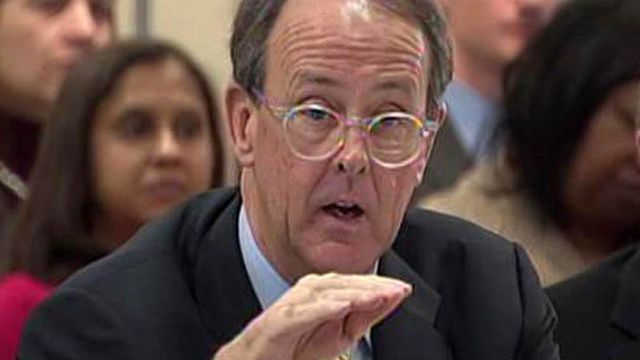UNC system officials review proposed tuition increases
The annual tuition process is somewhat different this year because the General Assembly set guidelines for tuition increases as part of negotiations last summer to erase a record deficit and reach a budget agreement.
Posted — UpdatedThe annual process is somewhat different this year because the General Assembly set guidelines for tuition increases as part of negotiations last summer to erase a record deficit and reach a budget agreement. Usually, schools make requests based on their needs, and the Board of Governors makes adjustments.
Under the General Assembly's guidelines, a UNC campus must raise tuition for the 2010-11 school year by the lesser of 8 percent or $200. The extra money would go back to the state's General Fund, not the schools.
UNC President Erskine Bowles has proposed an alternative that would send the money to the schools, with half of it earmarked for need-based financial aid.
"The people getting squeezed are those in the middle," Bowles said, noting many middle-class families don't qualify for some forms of financial aid and wind up struggling to pay for their children's college education.
UNC-Chapel Hill has requested a $200 increase for in-state students, while North Carolina State University has asked for $150 and North Carolina Central University has requested $113. Fayetteville State University has asked for a $124 tuition increase, while East Carolina University requested a $90 increase.
The proposed tuition increases don't include the student fees each campus also charges.
Despite the fact that UNC-Chapel Hill and N.C. State are seen as offering some of the best values among U.S. universities, officials said more students are seeking financial aid, so the schools need the extra money from any tuition increase.
"If we don't get the 50 percent that's set aside for need-based aid, then we are going to have a much harder time meeting the need of the students," UNC-Chapel Hill Chancellor Holden Thorp said. "In fact, we may end up actually using more than 50 percent for need-based aid because that's the biggest hole we've got in the budget right now."
UNC-Chapel Hill has seen a 23 percent increase this year in the number of students applying for financial aid, Thorp said.
Bowles would like the other half of the tuition increases to pay for various needs at the UNC campuses. The university system has cut its budget by almost $300 million in recent months and slashed administrative costs by more than 18 percent because of the state deficit.
"I think it is something that is unfortunately probably necessary," UNC-Chapel Hill senior Erik Russ said of a tuition increase. "You have to raise the money somehow, and unfortunately, tuition is probably the best way to do that."
UNC system administrators will review the requests before presenting them again to the Board of Governors next month for a final vote. Lawmakers would have to sign off on the increases later this spring before they could take effect.
• Credits
Copyright 2024 by Capitol Broadcasting Company. All rights reserved. This material may not be published, broadcast, rewritten or redistributed.






